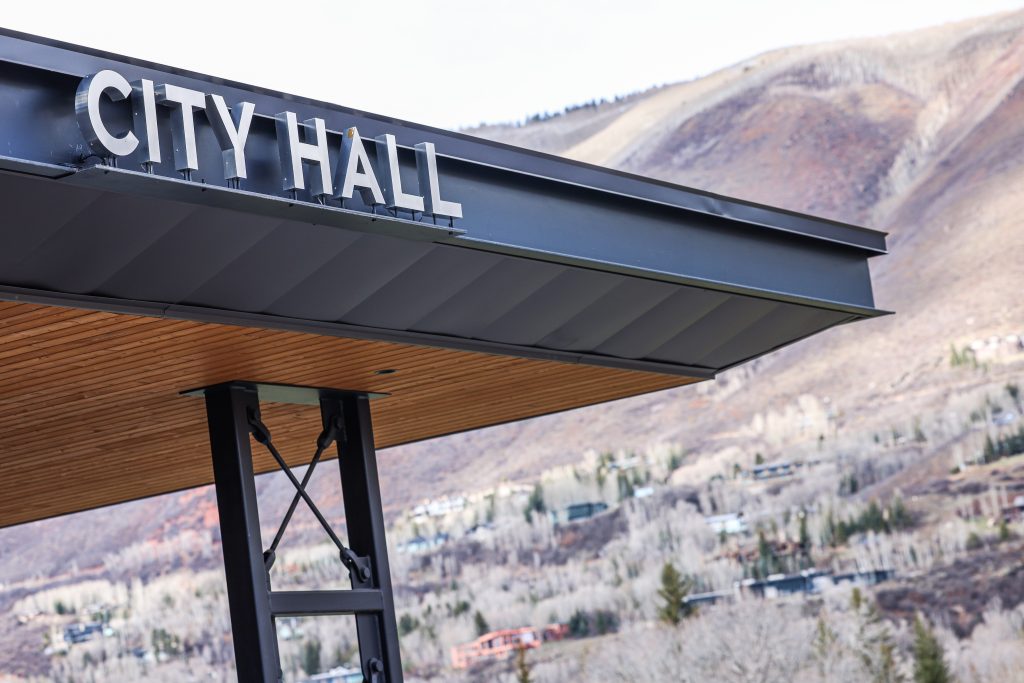APCHA educating HOAs on Aspen’s energy upgrade possibilities
Aspen CORE will be presenting on funding and more for the housing association

Austin Colbert/The Aspen Times
“When in doubt, get CORE involved.”
That’s what Ofek Bruhis, project manager for the Community Office for Resource Efficiency, recommends, and the Aspen/Pitkin County Housing Authority is taking him up on that with an HOA Education Series talk highlighting “What CORE Can Do For Your HOA.”
The event will be hosted at the Aspen City Council Chambers, 427 Rio Grande Place, from 11:30 a.m. to 1 p.m. on Tuesday, Sept. 9. Light lunch and refreshments will be served.
“APCHA is committed to protecting and preserving our deed-restricted housing while investing in residents’ quality of life,” APCHA Outreach Coordinator Meg Simon said. “Lower utility bills, more predictable operating costs, cost-effective upgrades, tighter building envelopes, and increased health and comfort are tangible benefits that can result from CORE’s initiatives.”
Simon noted that high-altitude winters and older buildings create a recipe for higher energy use. Changes like modern heat pumps, smart controls, and tighter building envelopes can improve comfort during cold snaps and wildfire-smoke events, while cutting back on energy demand. Electrifying space and water heating reduces local emissions and eases peak loads.
Lower energy burdens will also free up household income, she said.
Bruhis and Tim Johns, senior energy concierge for CORE, will discuss energy upgrades, funding, and provide expert guidance for HOAs to consider.
“We want to give people the opportunity to make some really crucial energy efficiency upgrades,” Johns said. “No one wants to spend money on their homes from an energy efficient standpoint, but we’re there to help cover the gap.”
CORE provides funding assistance for those in the valley to assist with home energy upgrades — those who have housing through APCHA can apply for the Community Priority Participants funding, meaning local community members have the chance to qualify for savings of up to $15,000 on a single residential project and up to $50,000 for a commercial or multi-family building project.
“Every person that’s in APCHA housing makes this town run,” Johns said. “We want to be there for them and help them as much as we can.”
Alongside APCHA’s Essential Repairs Grant Program, CORE can help residents leverage outside funding and rebates for energy-efficient, emissions-reducing upgrades, according to Simon.
“By prioritizing energy improvements, we protect long-term affordability and the homes themselves — a win for APCHA residents and the broader community,” she said.
And in the face of a changing, warming climate, Bruhis emphasized that local participation in reducing greenhouse-gas emissions is crucial to the community’s longevity as a whole.
“Mountain communities are going to be one of the first communities to be affected by climate change,” he said. “We’ve already seen this. This valley has cared about greenhouse-gas emissions for a long time — it’s almost like we’re carrying the torch of greenhouse-gas reduction.”
As the Trump administration rolls back some of the federal initiatives to reduce greenhouse gas emissions, Bruhis noted, “We have to work even harder as a community to take a step forward.”
“We’re lucky to live in a place with pretty clean air and pretty clean water,” Johns added. “We have to do everything we can to keep it that way.”
For more about the Community Priority Participants and additional funding, visit aspencore.org/community-priority-participants. Free consultations for energy efficiency are also available.
“Reach out to us,” Johns said. “Let us help you and walk you through it.”
To RSVP for the HOA seminar or for more information, call 970-920-5050, or email apcha@aspen.gov.
“For our mountain community, efficiency isn’t a luxury — it’s resilience,” Simon said. “Tight, efficient, electrified homes keep people comfortable, cut bills, and reduce emissions in practical, measurable ways.”
Update: Road open after bike accident closes Castle Creek Road
Castle Creek Road will be closed around mile marker 6 following a bike accident, PitkinAlert announced at 2:54 p.m. Monday.









